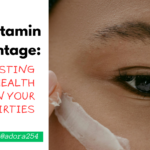In today’s fast-paced, image-conscious world, the appeal of a “quick-fix” solution for weight loss is stronger than ever. Fat burners — capsules, powders, and drinks promising to melt fat effortlessly — seem to offer the shortcut everyone craves. After all, who wouldn’t want to lose weight faster without drastically changing their lifestyle?
But behind the flashy marketing and bold claims lies an important question:
Are There Any Fat Burners That Actually Work?
This blog takes a deep dive into that question, separating fact from fiction. We’ll explore:
- What fat burners really are
- Whether they work (and which ingredients have actual evidence behind them)
- Potential risks and side effects
- What truly works better for sustainable fat loss
- And answers to popular questions like “How to burn fat in 7 days” and “Which is the most effective fat burner?”
If you’ve ever wondered whether there’s a pill or powder that can truly accelerate your fat-loss journey — this is your essential guide.
What Are Fat Burners?
Definition and Marketing Claims
Fat burners are dietary supplements formulated with a blend of natural or synthetic ingredients that claim to help users lose weight faster by targeting fat directly. These products dominate fitness stores, online marketplaces, and social media ads, with promises like:
- “Torch belly fat fast!”
- “Boost your metabolism instantly!”
- “Melt fat while you sleep!”
It’s no wonder they attract so much attention. But what they claim and what they actually do are often very different stories.
Common Mechanisms of Action
Most fat burners on the market promise to help weight loss in one or more of the following ways:
- Increasing metabolism: The idea is to help your body burn more calories at rest or during activity.
- Suppressing appetite: Some ingredients aim to reduce hunger, leading to fewer calories consumed.
- Blocking fat or carbohydrate absorption: Others claim to prevent your body from absorbing some of the fat or carbs you eat.
- Boosting energy levels: By giving users more energy, fat burners theoretically encourage more physical activity and calorie burning.
Lack of FDA Regulation and Product Variability
Here’s the catch: unlike prescription medications, fat burners are typically not regulated by the FDA. This means:
- There’s no guarantee that what’s on the label matches what’s in the bottle.
- The dosage and purity of ingredients can vary significantly between products.
- Some products may contain hidden ingredients, unsafe compounds, or stimulants in risky quantities.
In short, fat burners exist in a regulatory gray area — marketed aggressively but often without solid evidence, consistency, or safety oversight.
Do Fat Burners Work? The Science
General Effectiveness of Fat Burners: The Reality Check
The promise of effortless fat loss is tempting, but when we look at the science, the reality is less glamorous.
Most fat burners simply do not live up to their marketing claims.
- Studies consistently show that for the vast majority of these supplements, the impact on long-term fat loss is minimal — if any at all.
- Fat burners don’t “melt fat” away or cause fat cells to disappear. Instead, they attempt to tweak your body’s metabolism, suppress appetite slightly, or block some calorie absorption — effects that tend to be subtle and temporary at best.
For anyone hoping a supplement will dramatically transform their body, the research is clear: results are modest and cannot replace diet and exercise.
Scientific Reviews: What Research Actually Shows
Multiple systematic reviews have analyzed fat-burning supplements. The verdict?
- Diet and exercise consistently outperform fat burners in achieving sustainable fat loss.
- Some ingredients like caffeine and green tea extract show a slight increase in metabolic rate, but this increase translates to a very modest calorie burn — nowhere near enough to cause significant fat loss on its own.
- Other so-called fat-burning compounds lack robust evidence entirely or have inconsistent results.
Put simply: a high-quality diet and regular exercise remain the gold standard for fat loss — far superior to relying on supplements alone.
Fat Burner Ingredients: What Actually Has Evidence?
While most fat burner products as a whole fall short, a few individual ingredients within them have shown small, research-backed effects.
Here’s a closer look:
| Ingredient | Evidence of Effectiveness | Notes |
| Caffeine | May temporarily boost metabolism and fat oxidation | Widely studied, but effects are small and short-lived |
| Green Tea Extract | Can slightly increase calorie burn | Contains caffeine and catechins (antioxidants) |
| Protein Powder | Increases satiety; may support fat loss indirectly | Helps reduce overall calorie intake |
| Yohimbine | May aid fat loss but has potential side effects | Can raise blood pressure, anxiety risks |
| 5-HTP | May reduce appetite | Lacks strong evidence for significant fat loss |
| Synephrine | Limited evidence; safety concerns at higher doses | Similar to banned ephedrine |
| CLA / L-carnitine | Weak, inconsistent results in studies | Not recommended as primary fat loss aids |
| Orlistat (Alli) | Reduces fat absorption; clinically proven | Only FDA-approved OTC option for weight loss |
Key takeaway for this section:
Most of these ingredients may offer small, incremental help at best — and none deliver dramatic fat-burning effects on their own.
Among all options, Orlistat stands out as the only FDA-approved aid for fat loss, though it must be combined with a low-fat diet for best results.
What is the 30/30/30 Rule of Fat Loss?
The “30/30/30 rule” is a popular fitness concept circulating in weight-loss communities and social media — but what exactly does it mean?
Here’s the breakdown:
- 30 grams of protein:
Consume at least 30 grams of protein with your first meal of the day. - Within 30 minutes of waking:
The timing emphasizes eating soon after waking up to kick-start metabolism and reduce cravings throughout the day. - 30 minutes of exercise:
Engage in 30 minutes of physical activity (often suggested as moderate cardio) soon after that first protein-rich meal.
What’s the rationale behind it?
This approach aims to:
- Boost metabolism early in the day
- Increase satiety (fullness) through higher protein intake
- Reduce late-day snacking and poor food choices
- Establish consistency with daily exercise
Does it work?
While there’s no specific clinical study validating this exact “30/30/30 formula,” its components are grounded in sound nutritional principles:
- Protein at breakfast: Proven to help control appetite and may improve body composition over time.
- Exercise: Essential for fat loss and overall health.
- Timing: Eating sooner after waking may help regulate blood sugar and appetite in some individuals, though personal preference matters too.
Bottom line:
The 30/30/30 rule isn’t magic, but it can serve as a simple, easy-to-remember framework for building healthy habits that support fat loss — no supplements required.
Safety Concerns and Risks
While fat burners may seem harmless because they’re sold over the counter, the reality is far more complex — and potentially risky.
Stimulants and Side Effects
Many fat burners rely on high doses of stimulants, especially caffeine, to temporarily increase metabolism and energy. But these come with common and sometimes serious side effects:
- Increased heart rate and blood pressure
- Anxiety, jitteriness, and nervousness
- Insomnia and poor sleep quality
- Digestive discomfort
For sensitive individuals or those with underlying health conditions (like heart disease or hypertension), these side effects can pose real health risks.
Interactions with Medications
Some fat burner ingredients can interact negatively with prescription or over-the-counter medications, including:
- Blood pressure medications
- Antidepressants
- Blood thinners
- Other stimulant-containing drugs
This is why consulting a healthcare provider before starting any fat-burning supplement is essential, especially if you’re already taking medications or managing a chronic health condition.
Hidden Ingredients and Lack of Transparency
Because fat burners are classified as dietary supplements, not medications, they’re not strictly regulated by the FDA for safety, quality, or effectiveness before they hit the market. This means:
- Some products may contain unlisted or banned substances.
- Others may not contain the quantities of ingredients they claim to.
- Proprietary blends make it hard for consumers to know exactly what they’re taking.
In some cases, products sold as “natural” fat burners have been found to contain undeclared pharmaceuticals or harmful substances, putting consumers at unnecessary risk.
Key takeaway for this section:
Even if marketed as natural or herbal, fat burners can come with significant side effects, health risks, and a lack of ingredient transparency.
Approach with caution — and always prioritize safety over quick-fix promises.
How to Reduce Belly Fat in 7 Days
“Belly fat” is one of the most common concerns in fitness and health circles — and understandably so. Visceral fat (fat stored around abdominal organs) is linked to higher risks of heart disease, diabetes, and metabolic issues.
So the question arises:
👉 Can you reduce belly fat in just 7 days?
The honest answer: No shortcuts
While it’s possible to feel less bloated or reduce water retention within a week, true fat loss — especially around the midsection — takes time.
Fat reduction happens when you consistently create a calorie deficit (burning more calories than you consume), and that process unfolds over weeks, not days.
What you can do in 7 days:
- Clean up your diet:
Cut back on ultra-processed foods, sugary drinks, and refined carbs.
Focus on whole foods: vegetables, lean proteins, healthy fats, and fiber-rich carbs. - Reduce sodium and increase water intake:
Helps minimize water retention and bloating, making your stomach feel flatter. - Add daily exercise:
Cardio + resistance training boosts calorie burn and preserves lean muscle. - Increase protein intake:
High-protein diets improve satiety and slightly boost metabolism.
Key takeaway for readers:
There’s no magic pill or supplement — including fat burners — that can target belly fat in a week.
But smart nutrition choices and consistent movement can help you feel leaner and lay the foundation for lasting fat loss.
How to Burn Fat in 7 Days
Many people ask:
👉 “How can I burn fat quickly — like, in a week?”
While you won’t achieve dramatic fat loss in just seven days, this short period can serve as a powerful kickstart to healthier habits and set you on a sustainable fat-loss path.
Here’s what’s realistic — and science-backed — for burning fat over 7 days:
Create a calorie deficit — safely
Fat loss fundamentally comes down to energy balance.
Aim for a moderate daily calorie deficit of 300–500 calories per day — enough to see progress without extreme dieting.
Prioritize whole foods
Focus on foods that are naturally filling and nutrient-dense:
- Lean proteins (chicken, fish, eggs, legumes)
- Vegetables and fruits
- Whole grains
- Healthy fats (olive oil, avocado, nuts)
These support satiety and reduce overeating.
Increase physical activity
A combination of cardio (brisk walking, cycling, HIIT) and resistance training (weights or bodyweight exercises) will maximize calorie burn and preserve muscle.
Even daily walking can have a significant impact when combined with dietary changes.
Cut down on refined carbs and excess sodium
This reduces water retention and bloating — making you feel leaner quickly, even though it’s not technically fat loss.
Manage stress and improve sleep
High stress and poor sleep can disrupt hormones that regulate hunger and metabolism, hindering fat loss efforts.
No fat burner supplement can replace these fundamentals.
In fact, any fat loss you achieve in seven days will be modest — but these habits can jump-start a healthier, more sustainable journey.
Which is the Best and Most Effective Fat Burner?
With shelves full of products promising rapid fat loss, it’s no surprise many people ask:
👉 “Which fat burner actually works best?”
Here’s the straight answer based on the evidence:
There is no magic pill or universal “best” fat burner
Most supplements marketed as fat burners contain blends of ingredients like caffeine, green tea extract, synephrine, and herbs — but studies show that their individual and combined effects on fat loss are small and often inconsistent.
Even the better-studied ingredients (e.g., caffeine, green tea extract) may only slightly increase metabolism and calorie burn — translating to just a few extra calories burned per day.
Orlistat (Alli) stands out — but with limitations
Among all options, Orlistat (brand name Alli) is the only FDA-approved over-the-counter fat-loss aid.
- How it works: It blocks the absorption of dietary fat in your gut, reducing calorie intake.
- Effectiveness: Research shows that when paired with a low-fat diet, it can lead to modest but consistent weight loss over time.
However, it comes with side effects (like gastrointestinal discomfort) and is not a miracle solution — diet quality still matters.
“Natural” fat burners aren’t tightly regulated
Natural does not automatically mean safe or effective. Many over-the-counter fat burners lack rigorous testing, may vary in quality, and some have even been found to contain hidden, unsafe ingredients.
Bottom line:
If you’re looking for the “best” fat burner, focus on your diet, exercise, and lifestyle first — because they outperform any supplement on the market.
If you’re considering a fat-loss aid, Orlistat is the most evidence-backed option, but it works best when used as part of a broader, healthy weight-loss strategy.
What Works Better Than Fat Burners?
If there’s one consistent message from decades of weight-loss research, it’s this:
👉 No supplement can replace the fundamentals of fat loss — a healthy diet and regular exercise.
While fat burners promise fast results, the evidence shows their impact is small, inconsistent, and often outweighed by side effects or false hope.
So what really works better — and safely — for fat loss?
Balanced, calorie-controlled nutrition
At the heart of fat loss is creating a sustainable calorie deficit.
But this doesn’t mean crash dieting — it means:
- Choosing whole foods over ultra-processed foods
- Prioritizing lean proteins, vegetables, fruits, whole grains, and healthy fats
- Watching portion sizes without deprivation
Resistance and cardio exercise
Exercise does more than just burn calories:
- It helps preserve muscle mass while losing fat
- Increases overall energy expenditure
- Improves metabolic health and insulin sensitivity
A combination of strength training and cardio yields the best results.
Daily activity and lifestyle changes
- Walking more
- Reducing sedentary time
- Managing stress
- Getting sufficient, quality sleep
These factors improve hormone balance, reduce cravings, and support long-term success.
Why these work better than fat burners
Unlike pills or powders that promise shortcuts, these lifestyle strategies:
- Provide sustainable, long-term results
- Improve overall health (not just weight)
- Avoid the risks, side effects, and disappointments common with supplements
Fat loss isn’t about magic pills — it’s about consistent habits.
Fat burners might play a tiny supporting role for some people, but they will never replace the transformative power of a healthy lifestyle.
Key Takeaways
Fat burners promise fast results, but most don’t deliver meaningful fat loss.
The majority of fat-burning supplements on the market have little scientific backing and their effects — if any — are modest and short-lived.A few ingredients show small benefits — caffeine, green tea extract — but won’t replace diet and exercise.
Even these better-studied compounds offer only a slight calorie-burning advantage and can’t compensate for poor eating or inactivity.Orlistat (Alli) is the only FDA-approved over-the-counter fat-loss aid, but it’s no magic pill.
It reduces fat absorption but works best when combined with a low-fat diet — and even then, its effects are moderate.Fat burners carry potential risks.
High doses of stimulants can cause jitteriness, anxiety, insomnia, and increased blood pressure.
Some products may contain hidden or harmful ingredients.The proven formula for fat loss is still simple but powerful: eat a healthy, balanced diet + exercise consistently. Lifestyle change beats supplements every time for lasting, safe fat loss.
If you’re serious about fat loss, focus on sustainable habits — not shortcuts. Fat burners might promise the world, but real, lasting results come from what you eat, how you move, and how you care for your body every day.
FAQ: Fat Burners and Fat Loss
- Are fat burners safe for everyone?
Not necessarily. Many fat burners contain high doses of stimulants like caffeine, which can cause side effects such as increased heart rate, anxiety, and insomnia.
They may also interact with medications (e.g., blood pressure drugs) or exacerbate underlying conditions.
👉 Always consult a healthcare provider before using fat burners, especially if you have health concerns.
2. How fast do fat burners work?
Even the best-studied ingredients in fat burners produce only modest, gradual effects — if they work at all.
Don’t expect overnight results: meaningful fat loss requires a sustained calorie deficit and consistent healthy habits, not just supplements.
3. Can fat burners help reduce belly fat specifically?
No supplement can target fat loss from a specific area like the belly (known as “spot reduction”).
👉 Fat loss occurs throughout the body, determined by overall calorie balance and genetics — not by where you want to lose fat.
4. What is the most effective fat burner on the market?
The only FDA-approved over-the-counter fat-loss aid is Orlistat (Alli), which reduces fat absorption in the gut.
Even then, its effects are modest and it works best when combined with a low-fat diet.
Natural fat burners like caffeine or green tea extract offer only minor, short-lived metabolic boosts.
5. Do fat burners work without exercise?
Most fat burners — even the few with modest evidence — will not produce significant fat loss without a calorie deficit and physical activity.
👉 Diet and exercise remain essential for safe, sustainable fat loss, with or without supplements.




